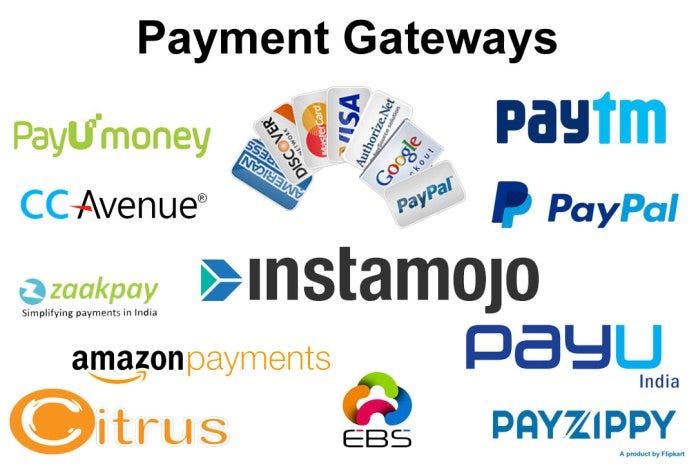AUTHOR : ANNU CHAUHAN
DATE : 25-08-2023
In today’s digital age, where convenience and security are paramount[1], payment processors[2] have emerged as a crucial element of the financial ecosystem[3]. Particularly in a rapidly growing economy[4] like India, these processors have not only simplified transactions but also paved the way for a cashless future[5]. In this article, we will explore the ins and outs of payment processors in India, how they work, their benefits, and also the leading players in this market.
Introduction
As the world embraces technology-driven solutions, the traditional methods of making payments are rapidly evolving. Payment Processors in India, with its vast population and surging internet penetration, has become a hub for innovation in the fintech space. Payment processors, the backbone of electronic transactions, have redefined how individuals and businesses handle their financial affairs.
Understanding Payment Processors
Payment processors are intermediaries that facilitate secure transactions between a payer and a payee. They act as a bridge, ensuring that funds are transferred smoothly while safeguarding sensitive information. These processors play a pivotal role in authorizing payments, verifying account details, and preventing fraudulent activities.
The Rise of Digital Payments in India
India’s journey towards becoming a cashless economy received a significant push with the government’s “Digital India” initiative. This initiative, coupled with demonetization in 2016, accelerated the adoption of digital payment methods. From remote villages to bustling cities, people started using payment processors for daily transactions, leading to financial inclusion and reducing the dependence on physical currency.
Key Features of Payment Processors
Payment processors offer a range of features that contribute to their popularity. Real-time transaction processing, multi-layered security protocols, compatibility with various devices, and user-friendly interfaces are some of the highlights. Moreover, the seamless integration of payment processors with existing banking systems has made them an indispensable part of the Indian financial landscape.
Benefits for Businesses
Businesses, especially small and medium-sized enterprises (SMEs), have witnessed transformative effects due to the adoption of payment processors. These solutions enable them to accept digital payments, manage invoices efficiently, and track transactions in real-time. Additionally, the analytics and insights provided by these processors empower businesses to make informed decisions to enhance their services.
Enhanced Security Measures
Security concerns have often been a roadblock to the widespread acceptance of digital payments. However, payment processors have tackled this challenge by implementing advanced encryption, biometric authentication, and tokenization techniques. These measures ensure that every transaction is highly secure, giving users the confidence to embrace electronic payment methods.
Prominent Payment Processors in India
Several payment processors have emerged as key players in the Indian market. Paytm, PhonePe, Google Pay, and Amazon Pay are among the frontrunners. These platforms offer a range of services, including peer-to-peer transfers, bill payments, and online shopping, making them an integral part of the average Indian’s daily life.
UPI: Transforming the Landscape
The Unified Payments Interface (UPI) has been a game-changer in the Indian payment ecosystem. UPI allows users to link multiple bank accounts to a single mobile application, facilitating seamless transactions round the clock. Its intuitive design and instant transfer capabilities have contributed to its massive adoption.
E-commerce and Payment Gateways
E-commerce businesses rely heavily on payment gateways to ensure smooth transactions during online purchases. These gateways, often provided by payment processors, securely transmit payment information between the customer, the merchant, and the bank. This process has been pivotal in boosting consumer confidence in online shopping.
Mobile Wallets: A Convenient Choice
Users can store funds in these wallets and make payments swiftly by scanning QR codes or entering mobile numbers. This simplicity, coupled with attractive cashback offers and discounts, has driven the widespread use of mobile wallets across India.
Challenges and Solutions
While the journey towards digital payments has been remarkable, challenges like connectivity issues, cybersecurity threats, and user awareness still exist. Collaborative efforts between the government, financial institutions, and tech companies are crucial to address these challenges and create a safer and more accessible digital payment environment.
The Future of Payment Processors
The future of payment processors in India appears promising. As technology continues to advance, we can expect even more innovative features such as voice-activated payments, biometric enhancements, and integration with emerging technologies like blockchain. These developments will further enhance user experience and redefine the way we transact.
Embracing a Cashless Society
The ongoing shift towards a cashless society in India aligns with global trends. Payment processors are at the forefront of this revolution, enabling individuals to manage their finances conveniently and securely. This transformation not only improves financial inclusion but also contributes to the nation’s economic growth.
Navigating the Regulatory Landscape
The growth of payment processors has prompted regulatory considerations. The Reserve Bank of India (RBI) plays a vital role in overseeing these operations, ensuring compliance with rules and regulations. Striking the right balance between innovation and security remains a priority for regulators.
Conclusion
In conclusion, payment processors have ushered in a new era of financial transactions in India. With their user-friendly interfaces, robust security features, and continuous innovation, these processors have become an integral part of the nation’s digital transformation journey. As India marches confidently towards a cashless future, payment processors will continue to evolve, reshape the financial landscape, and empower millions.

FAQs
- Are payment processors secure? Yes, payment processors utilize advanced security measures like encryption and biometric authentication to ensure secure transactions.
- Which are the popular payment processors in India? Some of the popular payment processors in India are Paytm, PhonePe, Google Pay, and Amazon Pay.
- What is UPI’s role in Indian payments? The Unified Payments Interface (UPI) has revolutionized Indian payments by enabling seamless, instant transactions through mobile applications.
- Do payment processors support businesses? Yes, payment processors offer features like invoice management and real-time transaction tracking, benefiting businesses, especially SMEs.
- How will payment processors evolve in the future? Payment processors will likely embrace technologies like voice-activated payments and biometric enhancements to provide even more convenient services.






